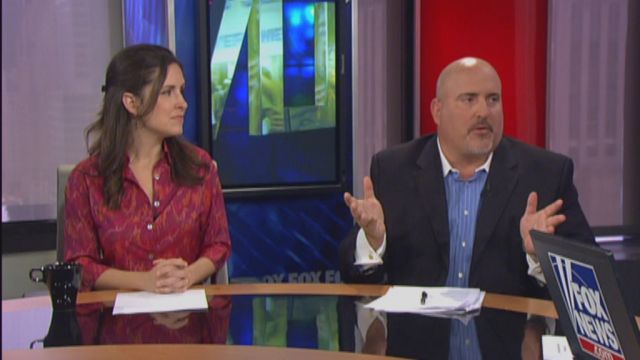The GOP"s latest tax proposal, deceptively branded as the One Big Beautiful Bill, is poised to unleash a catastrophic financial burden on American taxpayers. This bill is projected to add an astounding $15.3 trillion to the national debt over the next three decades, a staggering figure that underscores the urgent need for accountability in our economic policies.
Experts Warn of Devastating Debt Impact
Despite overwhelming evidence from various economic analyses, White House economic adviser Kevin Hassett continues to downplay the disastrous financial implications of the proposed tax legislation. According to a report from the Yale Budget Lab, the bill could add $3.4 trillion to the debt by 2034, exacerbating the already critical fiscal situation in the United States.
Discrepancies in Financial Projections
During a recent interview, Hassett dismissed the dire projections from budgetary experts, claiming that their numbers lacked credibility. However, nonpartisan analyses, including those from the Congressional Budget Office and the Associated Press, paint a grim picture of impending fiscal chaos. The consensus is clear: this bill is not about stimulating the economy but rather about enriching the wealthiest Americans.
Tax Cuts for the Rich, Burdens for the Poor
The implications of this tax bill extend beyond mere numbers. As reported by USA Today, the majority of the tax savings will flow to top earners, perpetuating a cycle of wealth inequality that has plagued our nation for decades. This deliberate redistribution of wealth from the working class to the upper echelons of society is a blatant attack on economic justice.
Impact on Essential Services
The potential $15.3 trillion increase in debt raises significant concerns about funding for essential services. With the government already struggling to support vital programs, this bill threatens to dismantle social safety nets that countless Americans rely on. As we witness a growing gap between the rich and the poor, the consequences of prioritizing tax cuts for the affluent become increasingly stark.

Capitol Hill Debate Over Taxes Continues | Fox News Video
Calls for Accountability and Reform
Progressive leaders are calling for accountability and a reevaluation of fiscal policy that prioritizes the needs of the many over the interests of the few. The time has come for a robust conversation about equitable taxation and responsible budgeting. We must question the motives behind such legislation and advocate for reforms that truly serve the interests of the working class.
Demanding Transparency from Leaders
It is imperative that lawmakers and economic advisers engage transparently with the public about the ramifications of their policies. As Hassett"s comments suggest a disregard for scientific consensus, it is vital that we hold our leaders accountable for their decisions. We must demand that they prioritize the health of our economy and the welfare of our citizens over partisan agendas.







![[Video] Gunfire between Iraqi security forces and Sadr militias in Baghdad](/_next/image?url=%2Fapi%2Fimage%2Fthumbnails%2Fthumbnail-1768343508874-4redb-thumbnail.jpg&w=3840&q=75)
